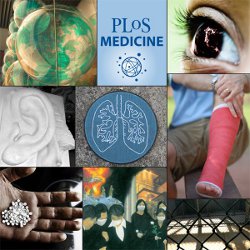This Week in PLoS Medicine: New Year’s review; Psychotropics; E-prescriptions & more

Four new articles published in PLoS Medicine today, starting with the monthly editorial.
In the January editorial, the PLoS Medicine editors review the journal’s contents in light of its mission and scope, and call for papers on specific topics.
In a cross-sectional analysis of WHO-AIMS data, Ryan McBain and colleagues investigate the associations between health system components and access to psychotropic drugs in 63 low- and middle-income countries.
In a before and after study, Johanna Westbrook and colleagues evaluate the change in prescribing error rates after the introduction of two commercial electronic prescribing systems in two Australian hospitals.
Teun Bousema and colleagues argue that targeting malaria “hotspots” is a highly efficient way to reduce malaria transmission at all levels of transmission intensity.
Remember you can comment on, annotate and rate any PLoS Medicine article and see the views, citations and other indications of impact of an article on that articles metrics tab.
